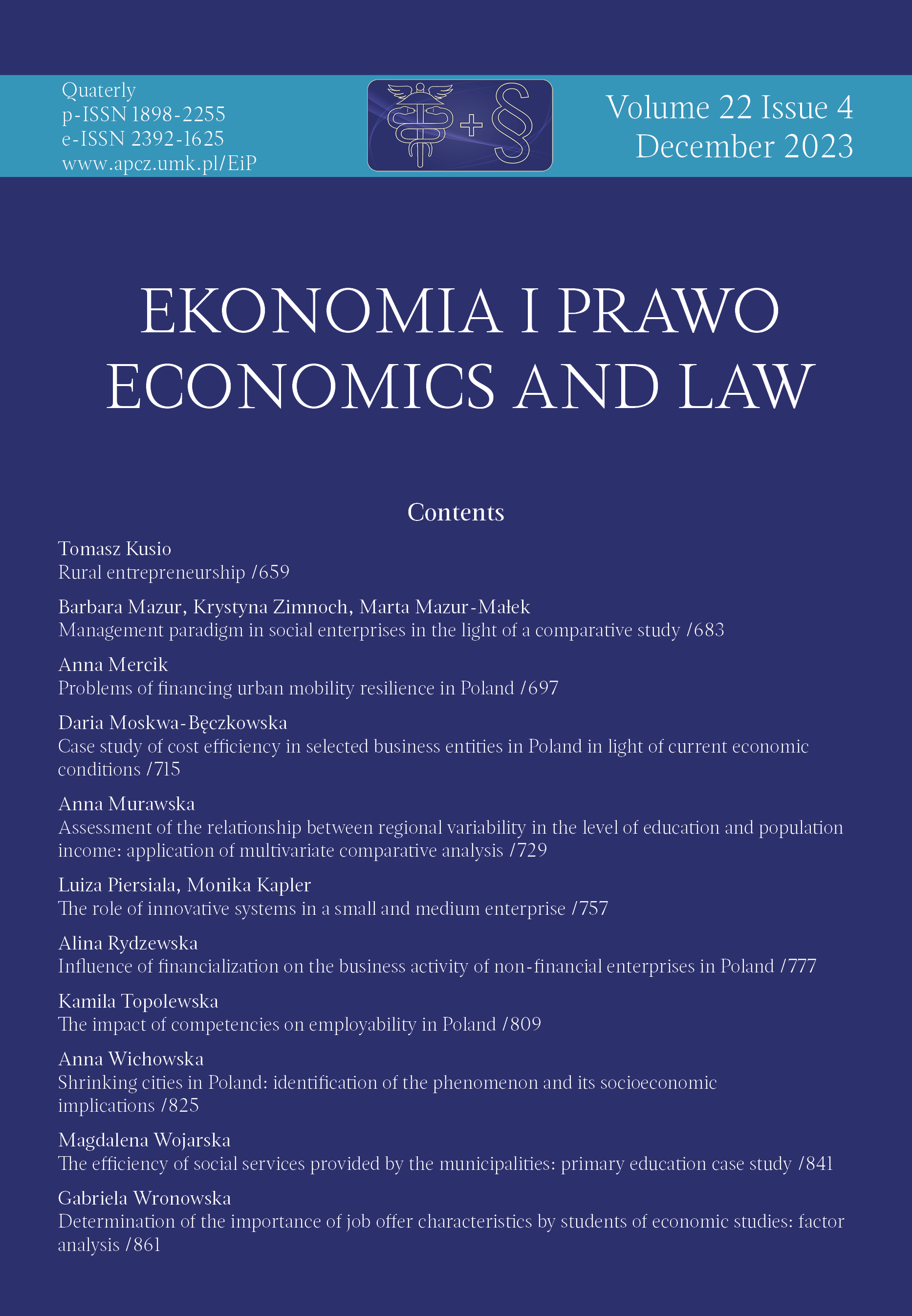Management paradigm in social
enterprises in the light of a comparative
study
Management paradigm in social
enterprises in the light of a comparative
study
Author(s): Barbara Mazur, Krystyna Zimnoch, Marta Mazur-MałekSubject(s): Business Economy / Management, Management and complex organizations
Published by: Wydawnictwo Naukowe Uniwersytetu Mikołaja Kopernika
Keywords: social enterprises; commercial enterprises; management paradigm; Polish enterprises; humanistic management;
Summary/Abstract: Motivation: Social enterprises are gaining importance in the modern economy. This entails the need for a better understanding of their mechanisms. For this reason, it is necessary to study the basic assumptions on which their effective management is based.Aim: The aim of the article is to identify the management paradigm in social enterprises, compared to commercial companies, on the basis of financial reports created by their management boards. In order to identify the management paradigm adopted in a given group of enterprises, reference was made to the concept of responsibility. The conceptualization of responsibility is based on the Triple Bottom Line (TBL) model, which includes three dimensions: social, environmental, and economic.Results: The research method is a comparative analysis of the content of financial reports of 30 selected social enterprises and commercial companies representing the dairy, trade, and insurance industries in Poland. The survey is qualitative in nature. Results confirmed that there are essential differences in the management paradigms of the two types of enterprises. The reports contain statements confirming responsibility in every dimension, but compared to commercial enterprises, the social and environmental aspect in management reports of social enterprises is more often presented, has more manifestations, a broader and a deeper scope. The scope of the content of these reports allows for the conclusion that they have greater awareness of responsibility for society and the natural environment than commercial enterprises. On the other hand, the analysis of the content of management board reports of commercial enterprises shows that their dominant sense is economic responsibility. The picture that emerges from the analysis of social enterprise reports shows the regular use of elements of the humanistic paradigm, while the economic paradigm is more frequently applied in commercial companies.
Journal: Ekonomia i Prawo. Economics and Law
- Issue Year: 22/2023
- Issue No: 4
- Page Range: 683-696
- Page Count: 14
- Language: English

